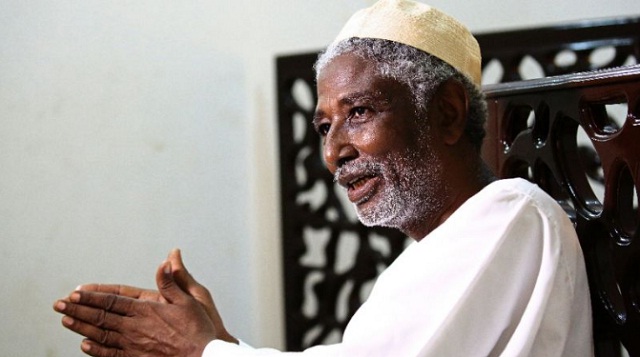
Khartoum, Sudan | AFP | A leading Sudanese activist who was released after a presidential pardon said Wednesday that defending human rights was “not a crime”, as he vowed to continue fighting against rights abuses.
Mudawi Ibrahim Adam, an engineering professor at the University of Khartoum, told AFP in an interview that it was pressure from global and local human rights groups that finally led to his release Tuesday after months of detention, during which he was put on trial on charges of spying for foreign embassies.
“Defending human rights is not a crime,” Ibrahim Adam, winner of several international human rights awards, said at his home in Khartoum’s twin city of Omdurman.
“Human rights are being violated not only by the authorities but also by armed groups, and we have to fight all those who abuse human rights.”
Ibrahim Adam, 58, was freed after President Omar al-Bashir pardoned him along with five other activists.
He was arrested in December as part of a crackdown against opposition leaders and activists in an attempt to crush widespread protests against a government decision to raise fuel prices.
Prosecutors accused him of being among activists who were running a “criminal organisation” and engaged in “spying and intelligence activities for foreign embassies”.
Ibrahim Adam and others were also accused of “publishing lies about (government forces) using chemical weapons” during fighting with rebels in the country’s conflict zones.
Ibrahim Adam said the prosecution had “no evidence” against him.
“They exaggerated things and made them big. The only way for them to back out was a direct intervention from the president,” said the activist, who went on hunger strike while in jail.
Ibrahim Adam, who has worked extensively on human rights issues in Sudan for three decades, has been arrested several times for his work.
The government shut down a development organisation he headed in 2009.
– ‘International pressure’ –
Ibrahim Adam said he was held in several prisons during his nine months in detention, after initially being detained by agents of the country’s powerful National Intelligence and Security Service (NISS).
He said these types of detentions were reason enough for human rights defenders to continue their fight.
The “human rights situation in Sudan will improve if you scrap laws that give the authorities the right to detain people without offering any reason”, said a relaxed Ibrahim Adam, dressed in a traditional white robe and cap.
“There is an institution that has a right to detain you for up to six months without offering any reason,” he said, in reference to NISS.
The way forward “is to fight such laws that restrict freedom”, the activist said, as dozens of men, women and university students arrived at his three-storey home to greet him after his release.
Global rights groups have often accused NISS of detaining human rights workers, opposition politicians and journalists.
NISS agents regularly confiscate entire newspaper print runs without giving a reason, particularly when they publish articles opposing government policies.
Ibrahim Adam said his release was a result of the “government’s own assessment” of his case, as well as pressure from international and local human rights groups.
“Officials of almost all foreign embassies used to attend my trial sessions,” he said, adding that even the United Nations believed there was no case against him.
Ibrahim Adam said it was this international pressure that made Bashir pardon him, not Washington’s expected decision on October 12 on whether to permanently lift US sanctions imposed on Sudan since 1997.
Some global campaign groups have insisted that Washington retain the sanctions, given Sudan’s human rights record.
Ibrahim Adam said the human rights situation in Sudan now “was not as bad as in the past”, but “more efforts” were still needed.
“We have to fight peacefully to change the overall situation,” he said.
“We have to insist that defending human rights is not a crime, and the government has to protect human rights defenders according to international conventions it has signed.”
 The Independent Uganda: You get the Truth we Pay the Price
The Independent Uganda: You get the Truth we Pay the Price



